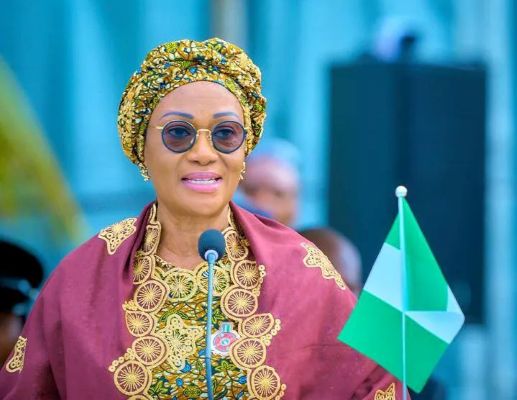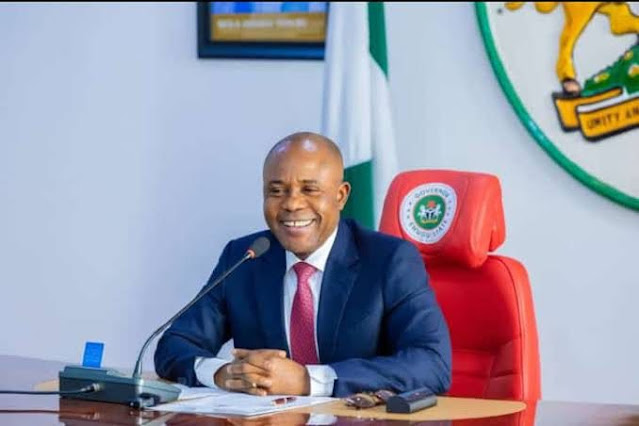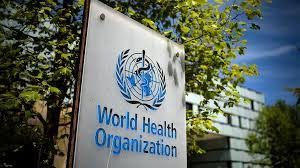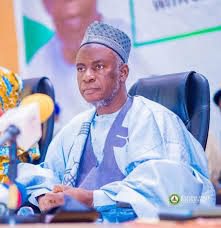In a landmark development poised to redefine Lagos State’s industrial landscape, the Oluremi Tinubu Industrial Leather Hub, located in the Matori area of Mushin, was commissioned on Saturday, August 23, 2025, during a three-day official visit by Nigeria’s First Lady, Senator Oluremi Tinubu. The state-of-the-art facility, named in honor of the First Lady, is expected to propel Lagos to the forefront of leather production and innovation, not only within Nigeria but on a global scale. The Speaker of the Lagos State House of Assembly, Dr. Mudashiru Obasa, hailed the project as a transformative initiative that embodies the state’s commitment to harnessing the entrepreneurial spirit of its people, fostering economic growth, and creating sustainable opportunities for artisans and workers.
The hub, equipped with cutting-edge industrial machinery, is designed to mass-produce a wide range of leather goods, including shoes, bags, belts, and packaging materials. Once fully operational, it is projected to generate over $250 million annually in export revenue, underscoring its potential to contribute significantly to Nigeria’s foreign exchange earnings. Additionally, the facility is expected to create 10,000 direct jobs and provide training and start-up support to more than 150,000 artisans, offering a lifeline to thousands of Lagosians and reinforcing the state’s position as an economic powerhouse.
A Visionary Leap for Lagos’ Industrial Future
Speaking at the commissioning ceremony, Dr. Mudashiru Obasa described the Oluremi Tinubu Industrial Leather Hub as a landmark achievement in Lagos State’s industrial development drive. “This facility represents more than just a production site,” he declared. “It embodies our commitment to harness the ingenuity and entrepreneurial spirit of Lagosians. I am confident it will empower artisans, create thousands of jobs, and establish Lagos as a global leader in leather production and innovation.” His remarks highlight the transformative potential of the hub, which is poised to become a cornerstone of Lagos’ ambition to lead Africa in industrial innovation and manufacturing.
Lagos, Nigeria’s commercial capital and one of Africa’s most dynamic cities, has long been a hub of economic activity. However, its industrial sector has faced challenges such as inadequate infrastructure, limited access to modern technology, and a reliance on imported goods. The Oluremi Tinubu Industrial Leather Hub addresses these challenges head-on by providing a state-of-the-art facility that combines advanced technology with local talent. By focusing on leather production—a sector with significant global demand—the hub taps into a lucrative market while leveraging Lagos’ abundant human capital and entrepreneurial spirit.
The hub’s strategic location in Matori, a bustling industrial area in Mushin, further enhances its potential to drive economic growth. Mushin has long been a center for small-scale manufacturing and trade, with a vibrant community of artisans and entrepreneurs. By situating the hub in this area, the Lagos State government is ensuring that the benefits of the project are felt directly by local communities, fostering inclusive growth and empowering those who have historically been underserved by large-scale industrial initiatives.
Economic Impact and Export Potential
The projected $250 million in annual export revenue from the Oluremi Tinubu Industrial Leather Hub is a testament to its economic significance. The global leather goods market, which includes products such as footwear, handbags, and accessories, is valued at billions of dollars, with growing demand in regions such as Europe, North America, and Asia. By positioning Lagos as a key player in this market, the hub has the potential to transform Nigeria’s trade balance, reducing reliance on oil exports and diversifying the economy.
The hub’s modern industrial machinery is capable of producing high-quality leather goods that meet international standards, ensuring competitiveness in global markets. Products such as shoes, bags, belts, and packaging materials manufactured at the hub will cater to both domestic and international consumers, creating new opportunities for Nigerian exporters. The facility’s focus on mass production will enable economies of scale, reducing production costs and making Nigerian-made leather goods more affordable and attractive to global buyers.
The economic ripple effects of the hub extend beyond export revenue. By creating 10,000 direct jobs, the facility will provide employment opportunities for a wide range of workers, from skilled artisans to factory operators and administrative staff. These jobs will have a direct impact on household incomes, reducing poverty and improving living standards in Lagos and beyond. Additionally, the hub’s commitment to training and supporting 150,000 artisans will empower a new generation of entrepreneurs, equipping them with the skills and resources needed to succeed in the competitive leather industry.
The training programs offered at the hub are particularly significant in a country where youth unemployment remains a pressing challenge. By providing artisans with access to modern tools, technical training, and start-up support, the hub will enable thousands of young Nigerians to build sustainable livelihoods. This focus on capacity-building aligns with Lagos State’s broader vision of fostering entrepreneurship and innovation, ensuring that the benefits of industrial growth are shared widely across society.
Honoring Senator Oluremi Tinubu
The decision to name the hub after Senator Oluremi Tinubu was widely praised by Dr. Obasa, who described it as a well-earned recognition of her contributions to Nigeria. “The naming honors her outstanding contributions as a three-term senator, her empowerment initiatives over the past twenty years, and her role as the wife of our President,” he stated. Senator Tinubu, a prominent figure in Nigerian politics and philanthropy, has dedicated much of her career to empowering women, youth, and marginalized communities, making her a fitting namesake for a project aimed at transforming lives through economic opportunity.
As a three-term senator representing Lagos Central, Senator Tinubu championed policies and initiatives that promoted education, healthcare, and economic empowerment. Her New Era Foundation, established over two decades ago, has provided scholarships, vocational training, and support to thousands of Nigerians, particularly women and youth. Her role as First Lady has further amplified her influence, allowing her to advocate for policies that address pressing social and economic challenges.
The naming of the hub after Senator Tinubu is not only a tribute to her legacy but also a symbol of the project’s alignment with her values of empowerment and inclusivity. By honoring her contributions, the Lagos State government is signaling its commitment to building on her legacy of service and creating opportunities for all Lagosians, regardless of their background or circumstances.
A Catalyst for Industrial Transformation
Dr. Obasa emphasized that the Oluremi Tinubu Industrial Leather Hub aligns with Lagos State’s vision to become an industrial powerhouse. “This hub signals our commitment to expanding manufacturing and boosting economic growth,” he said. The project is part of a broader strategy to position Lagos as a leader in Africa’s industrial landscape, leveraging its strategic location, vibrant workforce, and dynamic economy to drive innovation and growth.
Lagos has long been a pacesetter in Nigeria’s economic development, contributing significantly to the country’s GDP and serving as a gateway for trade and investment. However, the state’s industrial sector has faced challenges such as power shortages, inadequate infrastructure, and competition from imported goods. The Oluremi Tinubu Industrial Leather Hub addresses these challenges by providing a modern, well-equipped facility that can compete with international manufacturers while creating opportunities for local artisans and businesses.
The hub’s focus on leather production is particularly strategic, given the sector’s potential for growth and job creation. Leather goods are in high demand globally, and Nigeria, with its abundant livestock resources, is well-positioned to become a major player in this market. By investing in advanced machinery and training programs, the hub ensures that Lagos can produce high-quality products that meet global standards, positioning the state as a hub for leather innovation and manufacturing.
The project also aligns with Nigeria’s broader economic diversification goals. For decades, Nigeria’s economy has been heavily reliant on oil exports, making it vulnerable to global price fluctuations. By investing in non-oil sectors such as manufacturing and agribusiness, Lagos is contributing to the country’s efforts to build a more resilient and diversified economy. The Oluremi Tinubu Industrial Leather Hub is a model for how targeted investments in key industries can drive economic growth, create jobs, and reduce dependence on imports.
Social and Community Impact
Beyond its economic contributions, the Oluremi Tinubu Industrial Leather Hub is expected to have a profound social impact, particularly in the Mushin area and surrounding communities. Mushin is one of Lagos’ most densely populated and vibrant neighborhoods, home to a diverse population of artisans, traders, and small business owners. However, the area has also faced challenges such as unemployment, poverty, and limited access to modern infrastructure. The establishment of the hub in Matori is a deliberate effort to address these challenges, bringing development directly to the doorstep of local residents.
The creation of 10,000 direct jobs will have a transformative effect on the local economy, providing stable employment for thousands of families. These jobs will span a range of roles, from skilled leather craftsmen to technicians, managers, and support staff, ensuring that a wide cross-section of the community benefits from the project. The hub’s training programs, which will support 150,000 artisans, are particularly significant for young people and women, who often face barriers to entering the formal economy. By equipping artisans with modern skills and access to start-up resources, the hub will empower individuals to build sustainable businesses and contribute to the local economy.
The hub’s focus on inclusivity is also noteworthy. By prioritizing training and support for artisans, the project ensures that marginalized groups, including women and youth, have access to economic opportunities. This aligns with Senator Tinubu’s longstanding commitment to empowerment and social justice, making the hub a fitting tribute to her legacy. The project’s emphasis on community engagement and capacity-building will foster a sense of ownership among local residents, ensuring that the benefits of the hub are sustained over the long term.
Challenges and Opportunities
While the Oluremi Tinubu Industrial Leather Hub is a cause for celebration, it is not without challenges. The success of the hub will depend on several factors, including access to reliable power, efficient supply chains, and robust marketing strategies to promote its products in global markets. Nigeria’s manufacturing sector has historically faced challenges such as high production costs, inadequate infrastructure, and competition from cheaper imported goods. The hub will need to navigate these challenges to achieve its full potential and deliver on its promise of $250 million in annual export revenue.
Ensuring the sustainability of the hub’s operations will also require ongoing investment in maintenance, technology upgrades, and workforce development. The Lagos State government, in collaboration with private sector partners, will need to establish mechanisms to support the hub’s long-term viability, including partnerships with international buyers and trade organizations. Additionally, the hub will need to address environmental concerns, such as the impact of leather production on water resources and waste management, to ensure that its operations are sustainable and environmentally responsible.
Despite these challenges, the opportunities presented by the hub are immense. By leveraging Lagos’ strategic location and vibrant workforce, the hub has the potential to become a global leader in leather production and innovation. The project’s focus on training and capacity-building will create a skilled workforce capable of driving the industry forward, while its emphasis on export revenue will contribute to Nigeria’s foreign exchange earnings. The hub also has the potential to inspire similar projects in other parts of Nigeria, demonstrating the power of targeted investments in key industries.
A Model for National Development
The Oluremi Tinubu Industrial Leather Hub serves as a model for how targeted investments in infrastructure and human capital can drive economic growth and social progress. By combining modern technology with local talent, the hub demonstrates the potential of public-private partnerships to address Nigeria’s development challenges. The project’s focus on job creation, artisan empowerment, and export revenue aligns with the federal government’s goals of economic diversification and industrialization, making it a blueprint for other states to emulate.
The hub also underscores the importance of honoring leaders who have made significant contributions to society. By naming the facility after Senator Oluremi Tinubu, the Lagos State government is recognizing her legacy of service and empowerment, while also inspiring future generations to pursue excellence and innovation. The project’s success will depend on the continued commitment of all stakeholders, including the state government, private sector partners, and local communities, to work together toward a shared vision of prosperity.
Conclusion
The commissioning of the Oluremi Tinubu Industrial Leather Hub on August 23, 2025, marks a transformative moment for Lagos State and Nigeria as a whole. With its potential to generate $250 million in annual export revenue, create 10,000 direct jobs, and empower 150,000 artisans, the hub is a testament to the power of visionary leadership and strategic investment. Dr. Mudashiru Obasa’s remarks at the commissioning ceremony highlight the project’s significance as a catalyst for industrial development, economic growth, and social progress.
By honoring Senator Oluremi Tinubu, the hub celebrates her legacy of empowerment and service, while also setting a new standard for industrial innovation in Nigeria. As the hub begins operations, it has the potential to transform Lagos into a global leader in leather production, create opportunities for thousands of Nigerians, and contribute to the country’s economic diversification. The Oluremi Tinubu Industrial Leather Hub is not just a production site; it is a symbol of hope, resilience, and the limitless potential of Lagosians to shape a brighter future.






